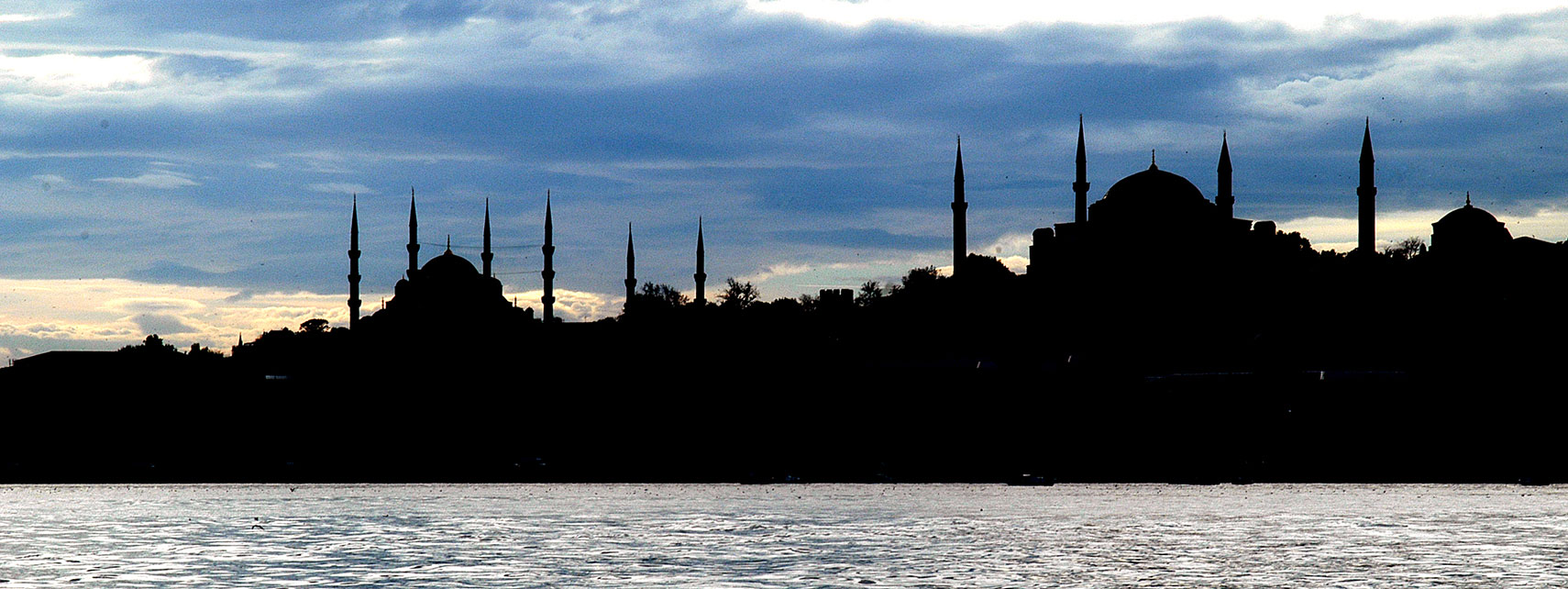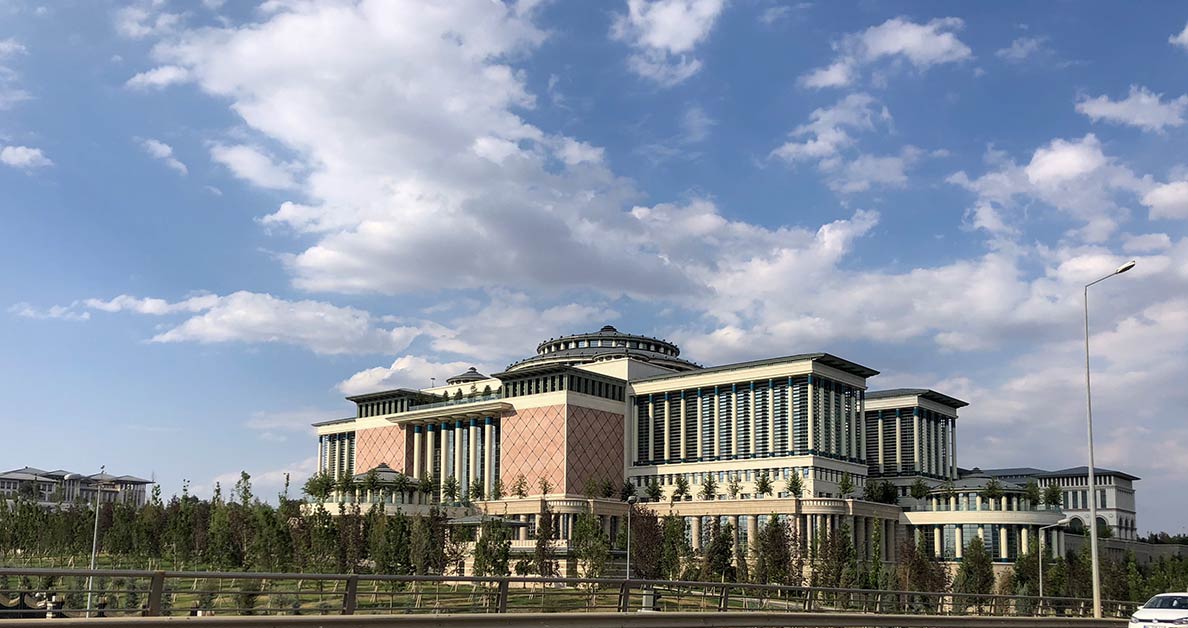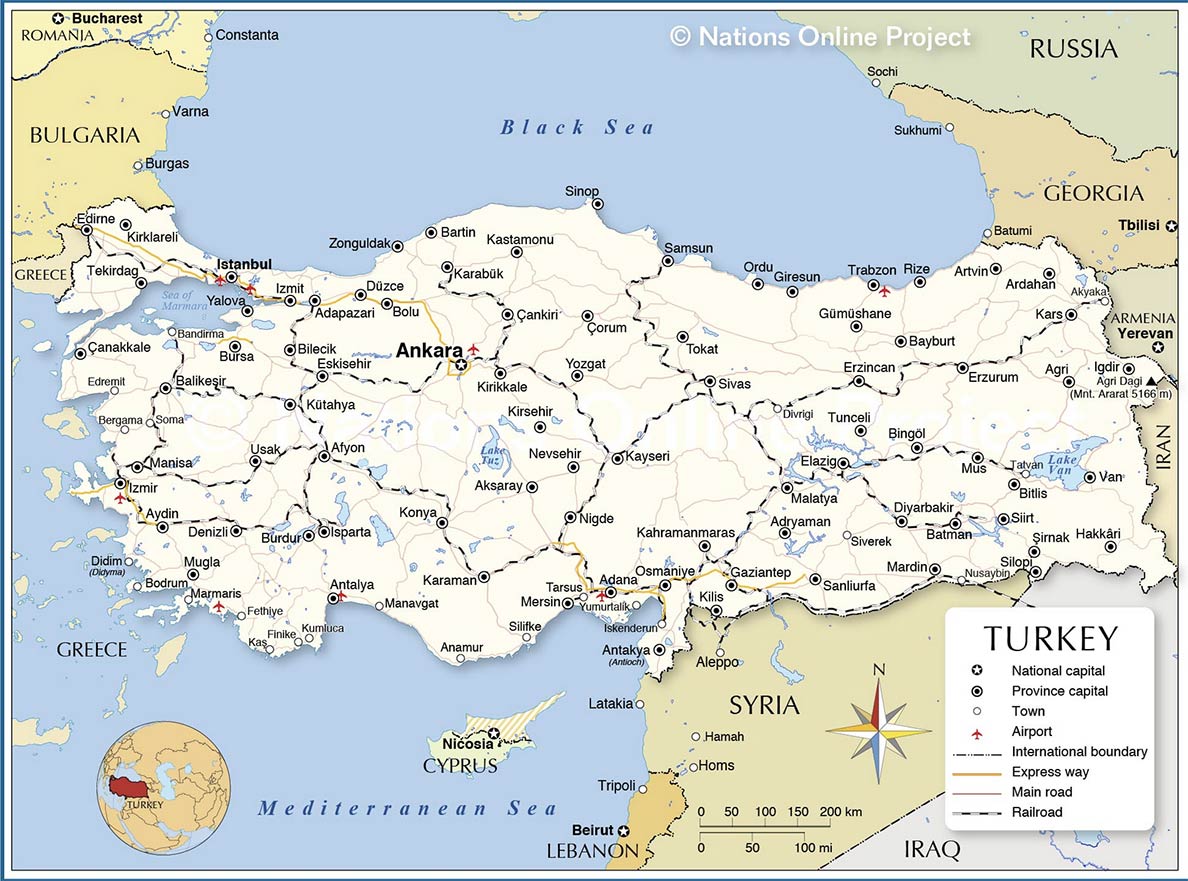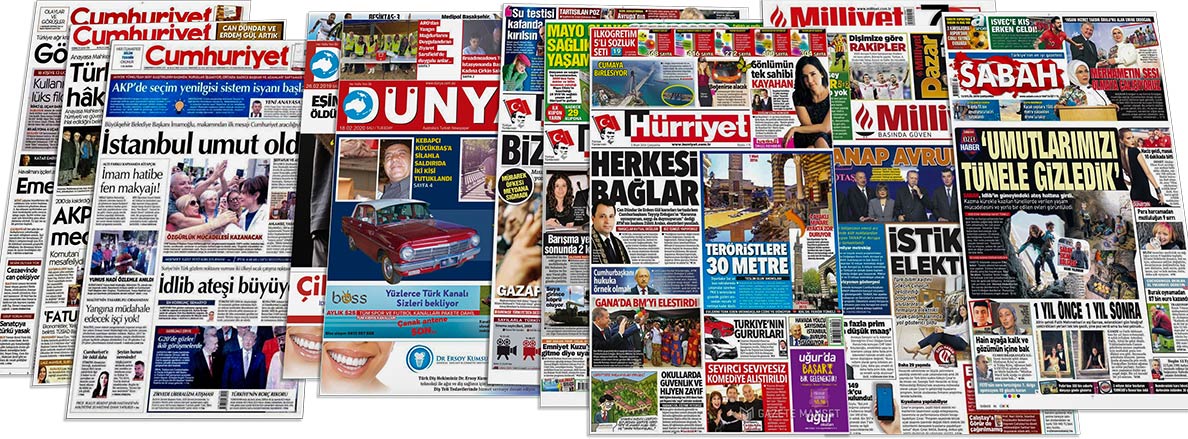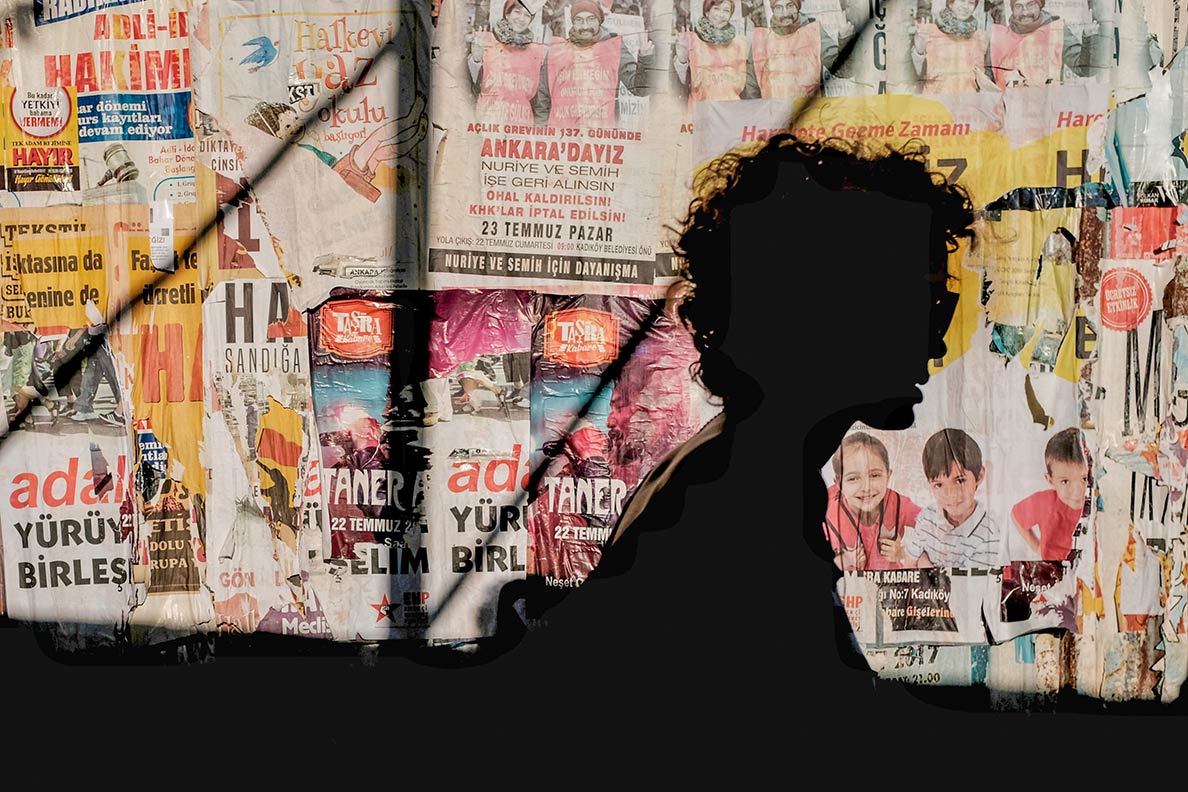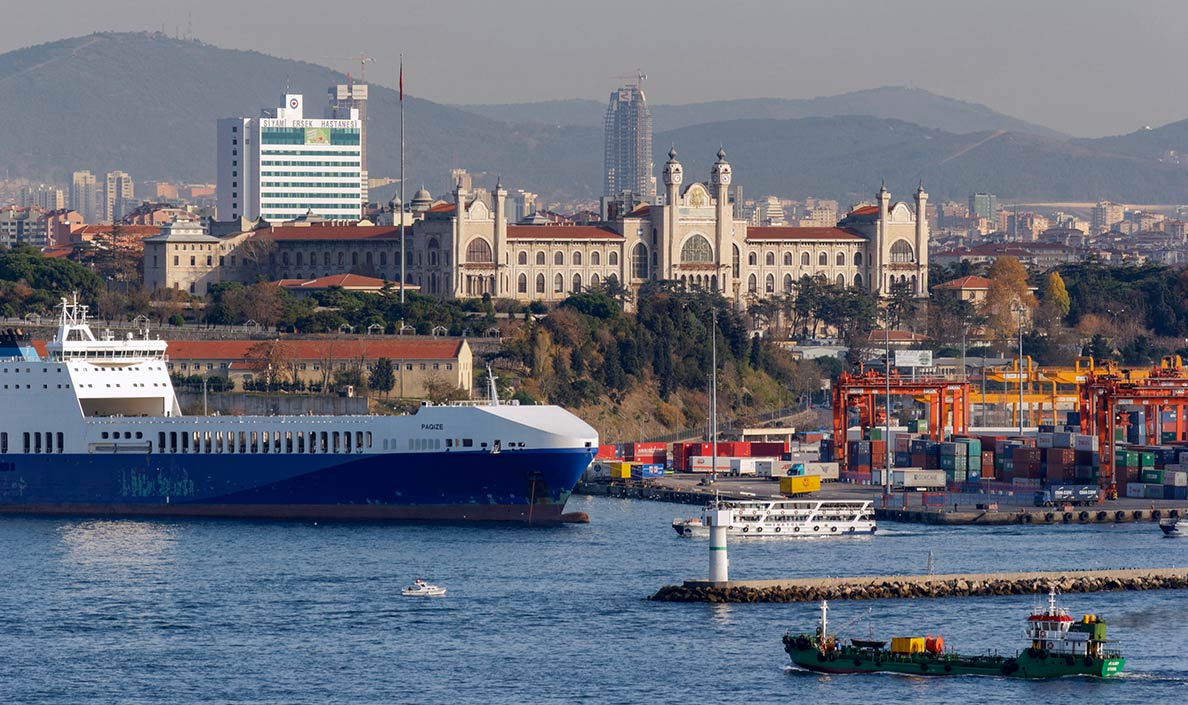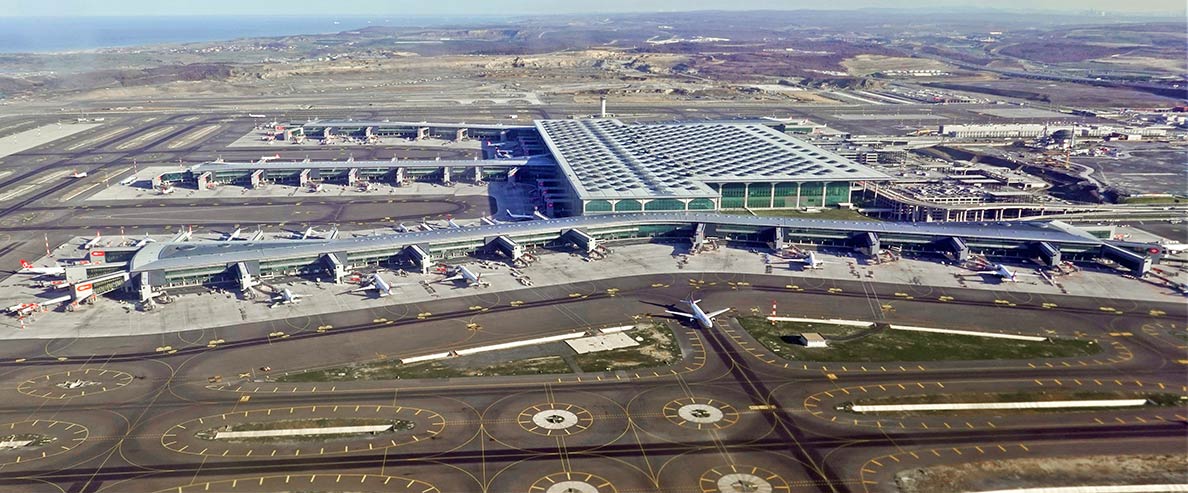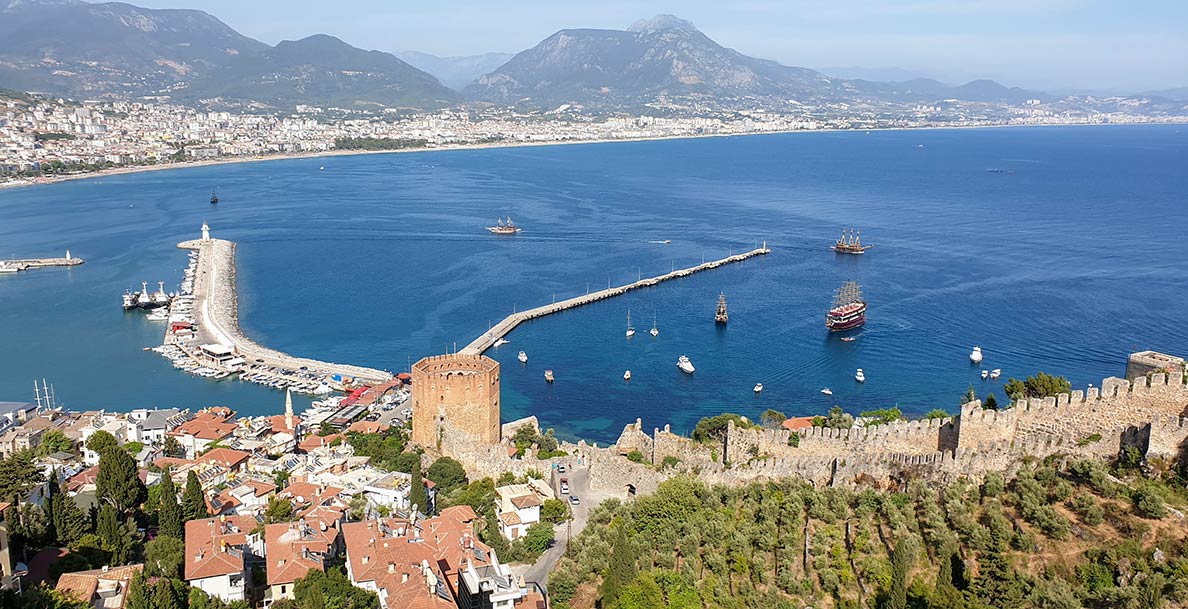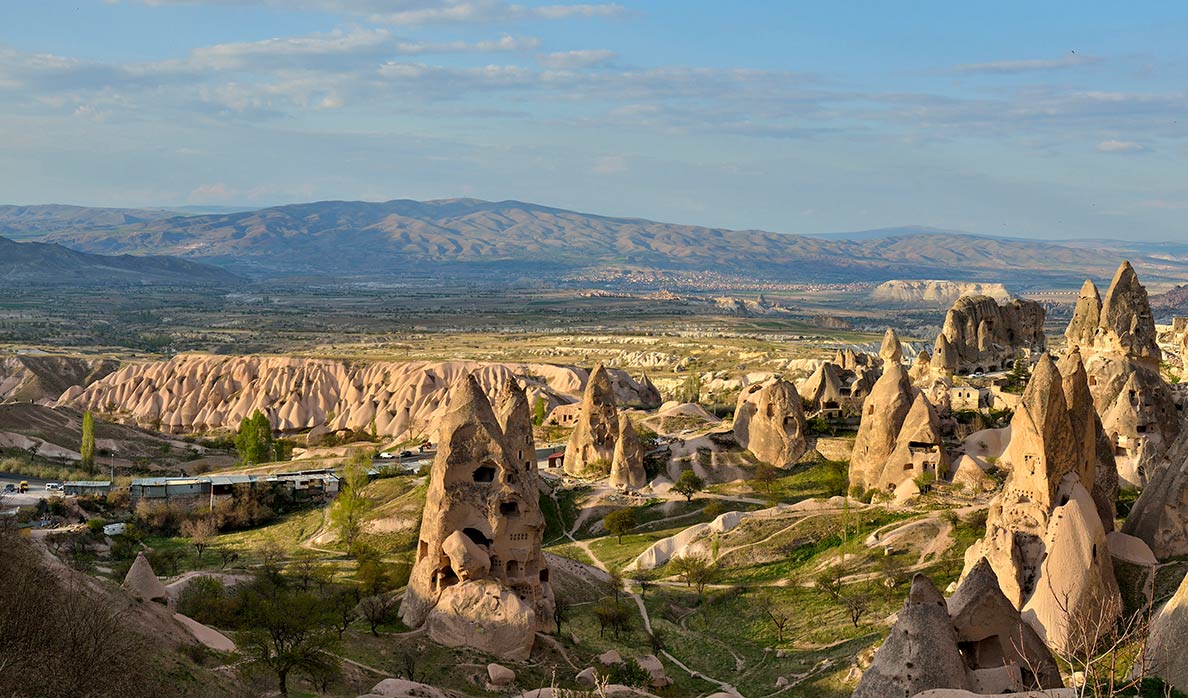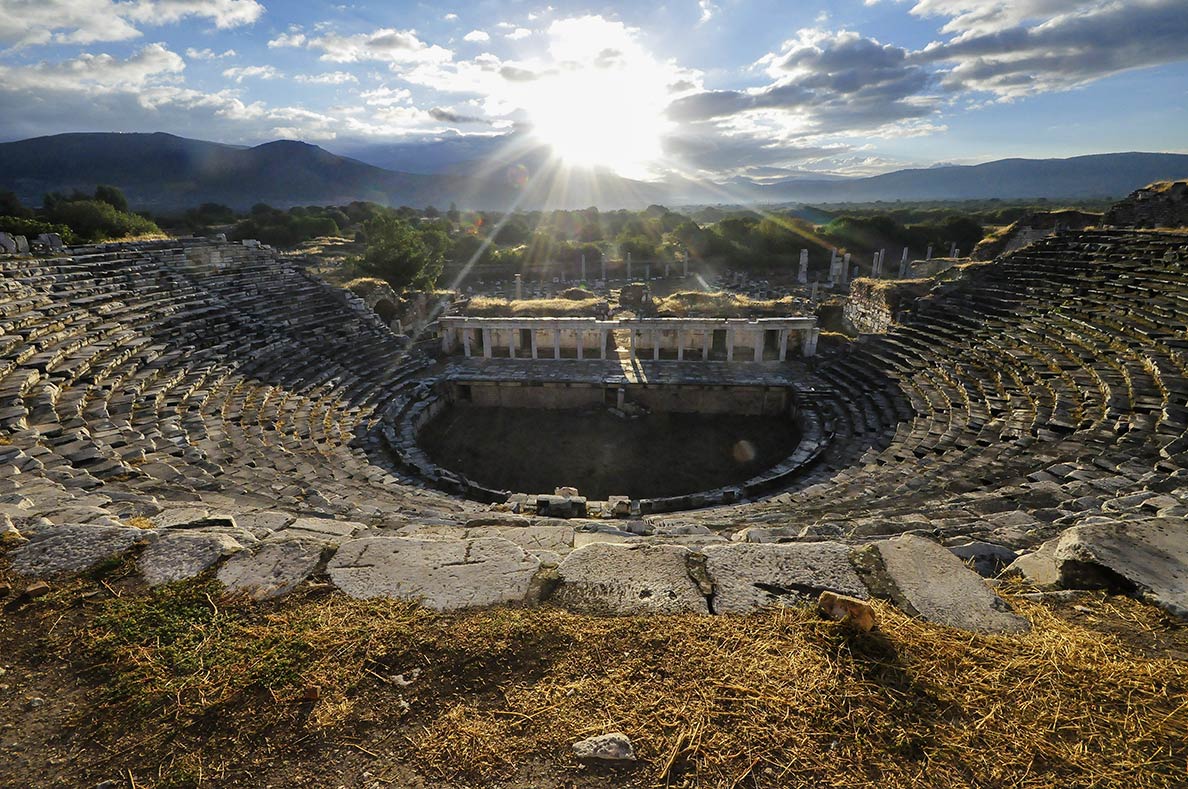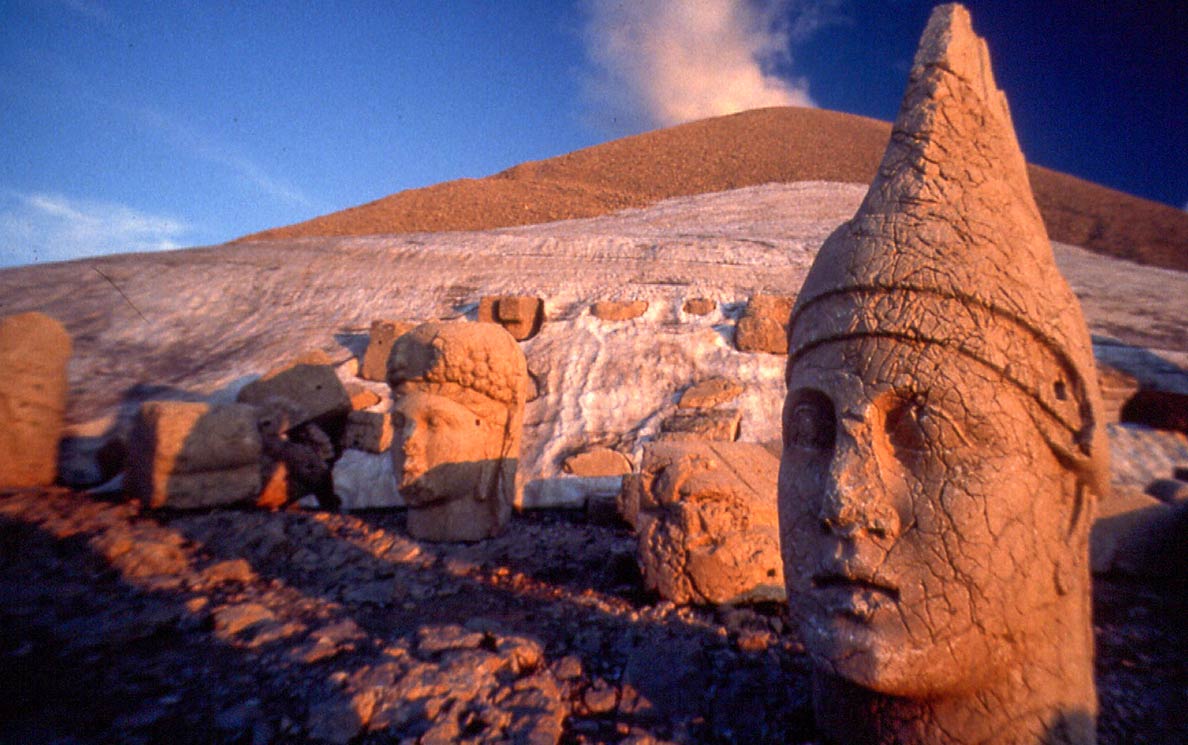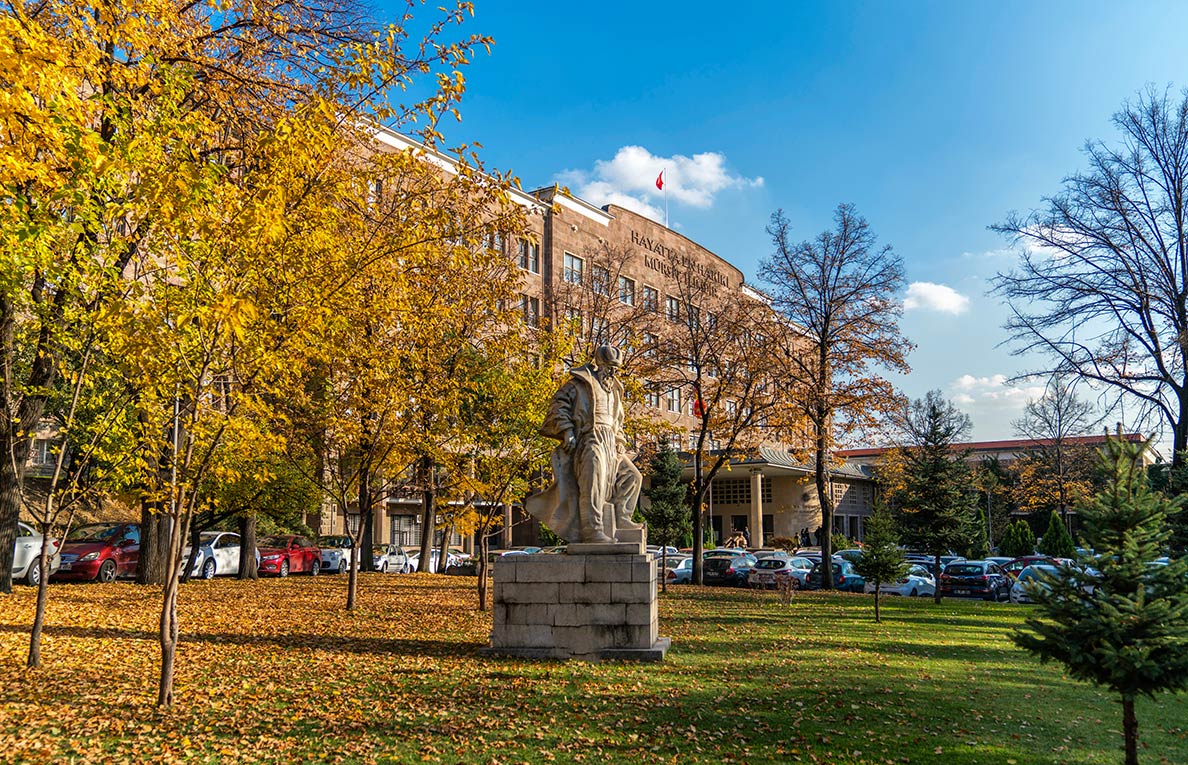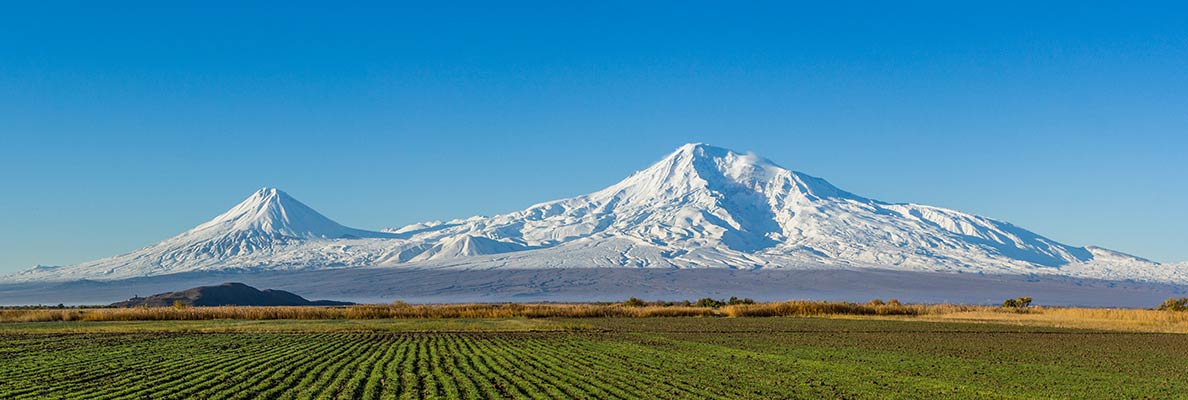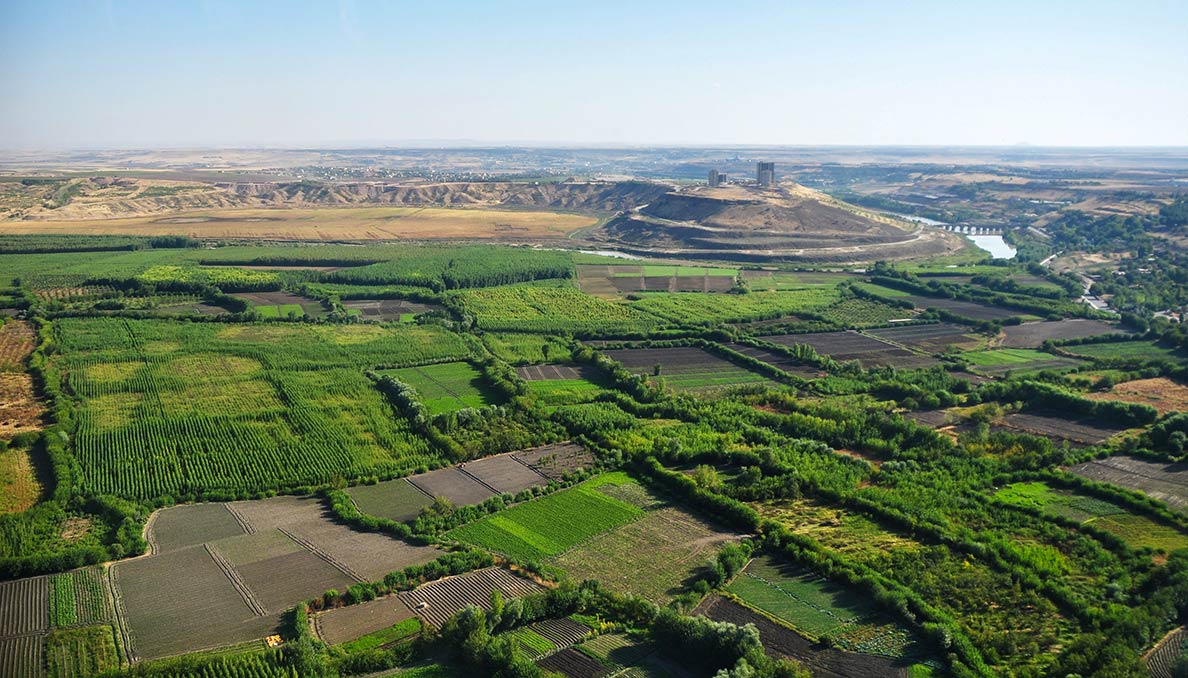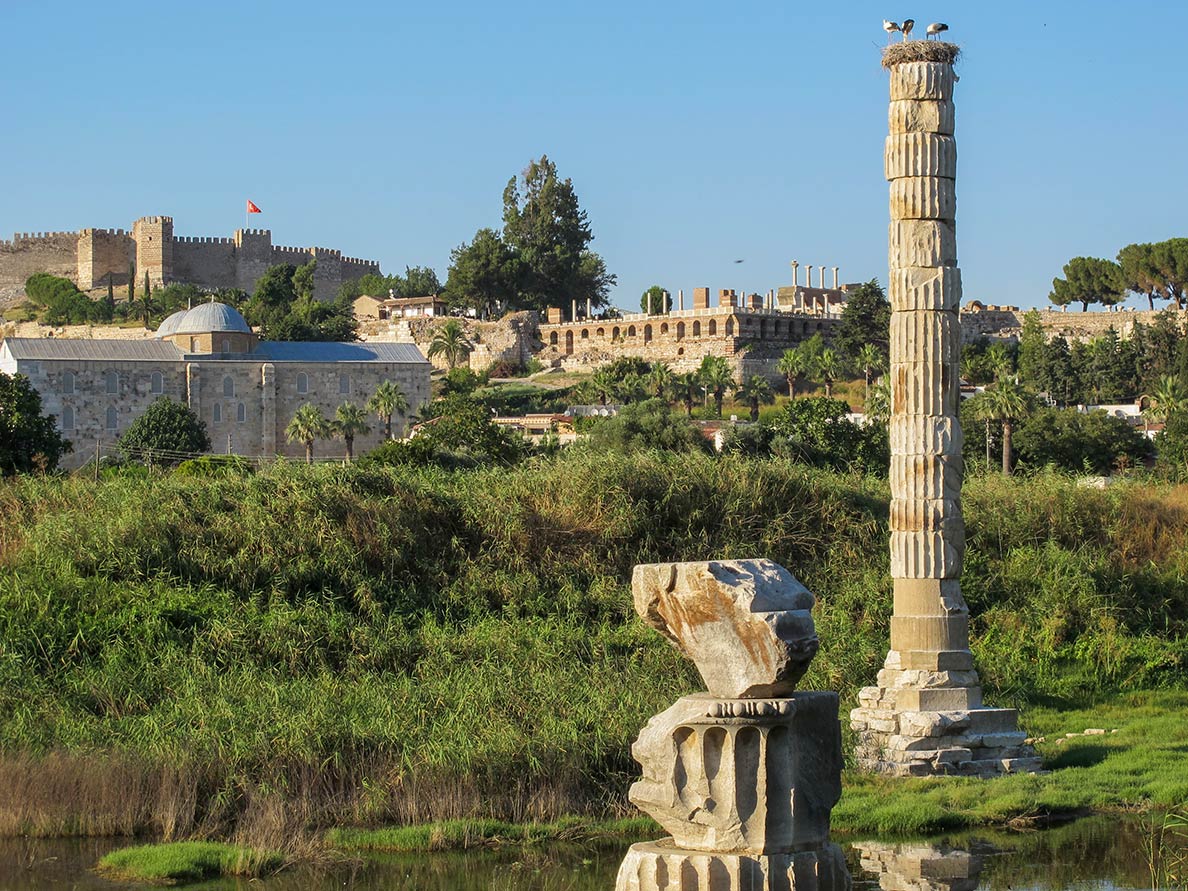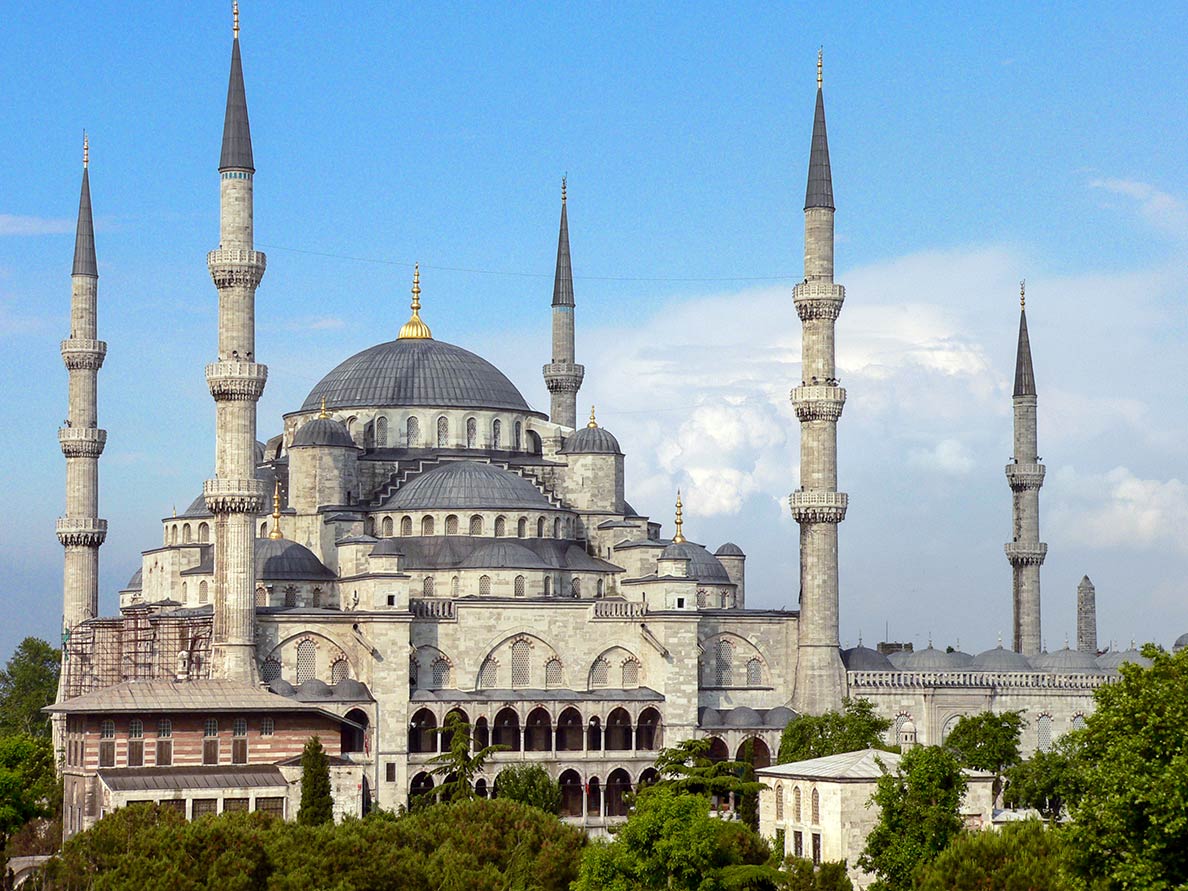(pop. 3.7 million)
Government:
Type: Republic
Independence: 29 October 1923
Constitution: 7 November 1982
Geography:
Location: southeastern Europe and southwestern Asia
Area: 783,562 km² (302,535 sq. mi.)
Terrain: Narrow coastal plain surrounds Anatolia; an inland plateau becomes increasingly
rugged as it progresses eastward. Turkey is among the most earthquake-endangered countries of the world.
Highest Mountain:
Mount Ararat 5,137 m (16,854 ft)
Climate: Moderate in coastal areas, harsher temperatures inland.
People:
Nationality: Noun--Turk(s). Adjective--Turkish
Population: 83.2 million (2020)
Ethnic groups: Turkish, Kurdish, other
Religions: Muslim 98%, Christian, Bahai and Jewish
Languages: Turkish (official), Kurdish, and
Arabic
Literacy: 96%.
Natural resources: Coal, iron ore, copper, chromium, antimony, mercury,
gold, barite, borate, celestite (strontium), emery, feldspar, limestone, magnesite,
marble, perlite, pumice, pyrites (sulfur), clay, arable land, hydropower.
Agriculture products: Tobacco, cotton, grain, olives, sugar beets, pulse,
citrus, livestock.
Industries: Textiles, food processing, autos, mining (coal, chromite, copper,
boron), steel, petroleum, construction, lumber, paper.
Exports - commodities: apparel, foodstuffs, textiles, metal manufactures, transport equipment
Exports partners: Germany 9%,
United Kingdom 6%,
Iraq 5%,
Italy 5%,
United States 5% (2019)
Imports - commodities: machinery, chemicals, semi-finished goods, fuels, transport equipment
Imports partners: Germany 11%,
China 9%,
Russia 9%, United States 5%, Italy 5% (2019)
Currency: Turkish New Lira (TRY)

